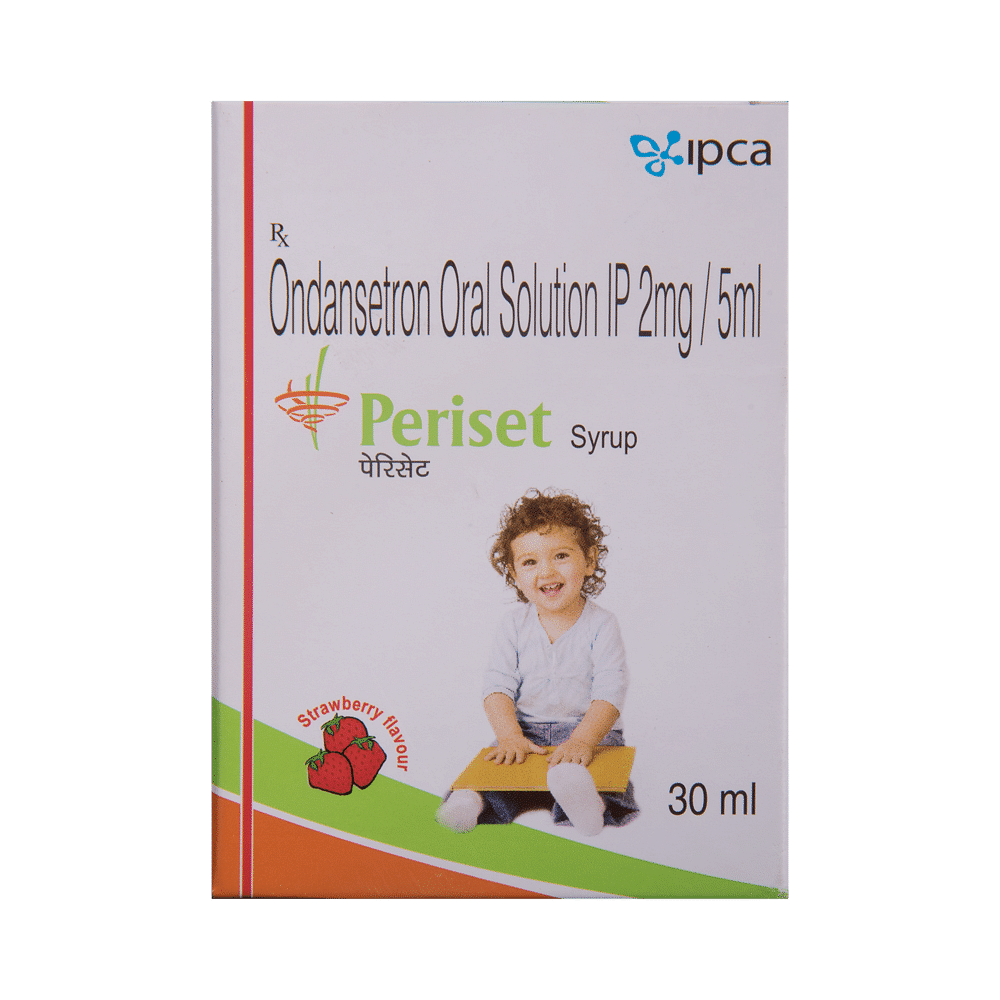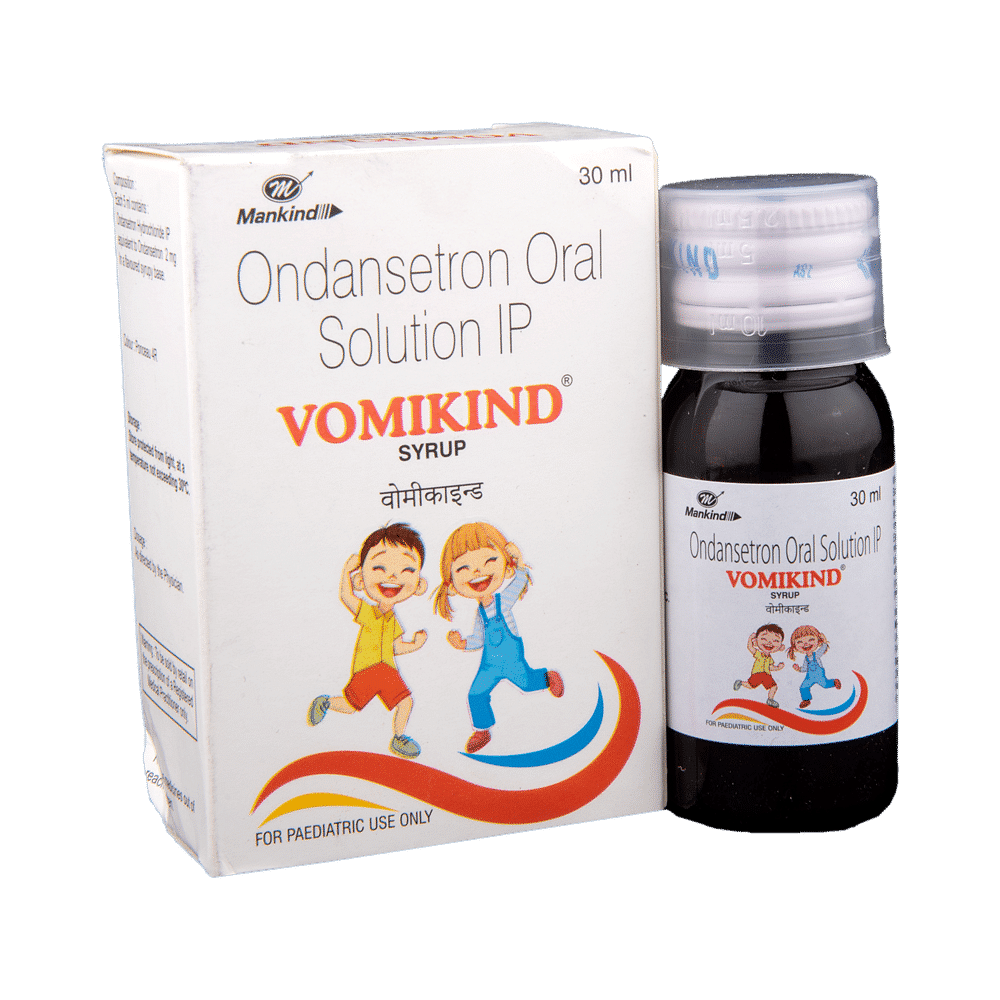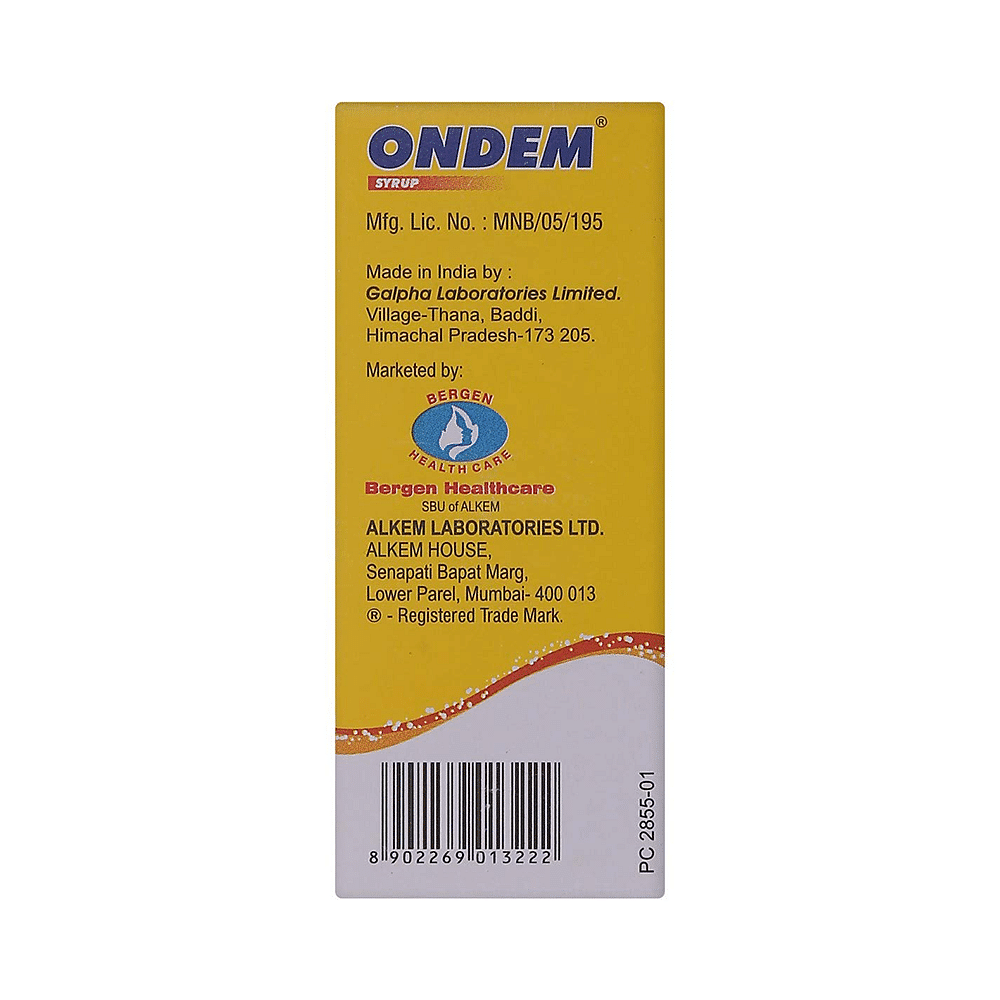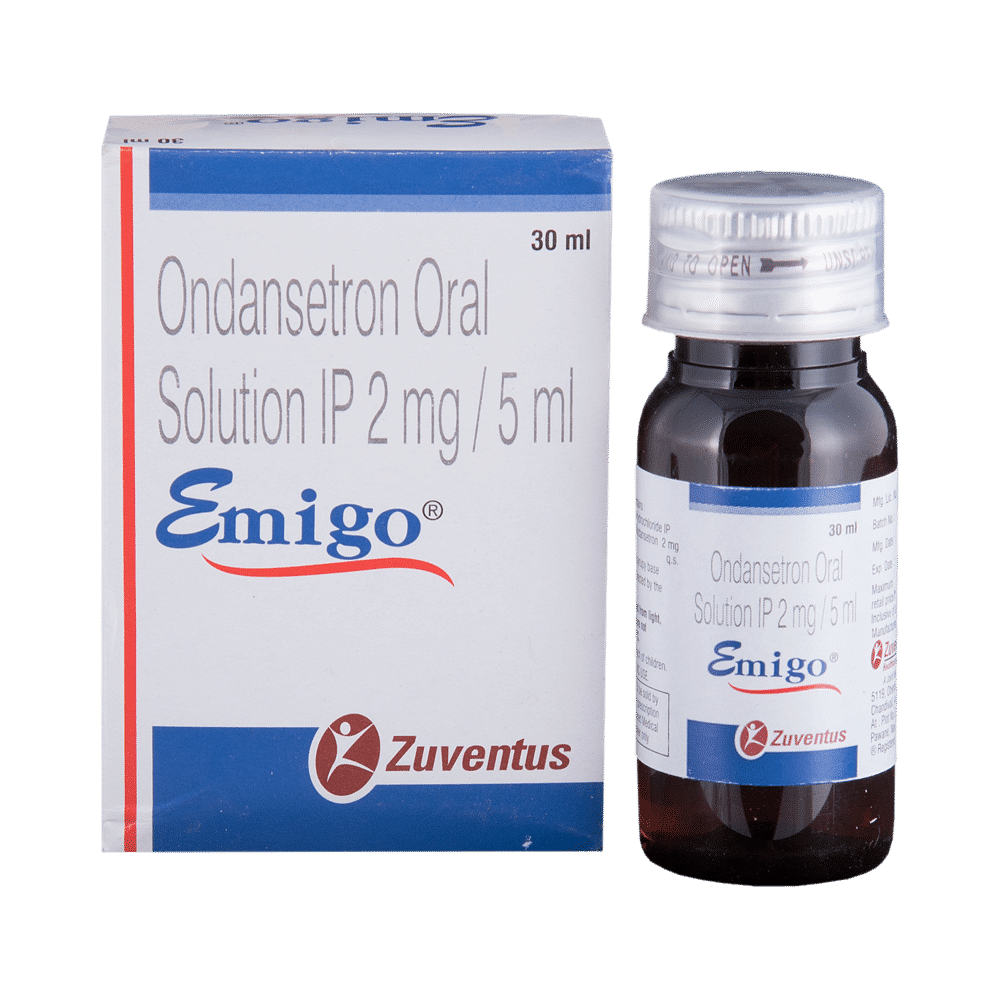
Vomid-OD Syrup
Manufacturer
Midas Healthcare Ltd
Salt Composition
Ondansetron (2mg/5ml)
Key Information
Short Description
Vomid-OD Syrup is a medicine given to children to help treat nausea and vomiting, mainly associated with surgery, chemotherapy, radiotherapy, and stomach/intestinal infection.
Dosage Form
Oral Solution
Introduction
Vomid-OD Syrup is a medicine given to children to help treat nausea and vomiting. It is mainly given to treat nausea and vomiting associated with surgery, chemotherapy, radiotherapy, and stomach/intestinal infection. It also helps treat vomiting that is caused as a side effect of medicines like painkillers.
Directions for Use
Give Vomid-OD Syrup just before the procedure to help block the effect of serotonin on vomiting centers of the brain and prevent vomiting.
Safety Information
Side Effects
No common side effects listed.
Interacting Medicines
Codeine Dextropropoxyphine Nalbuphine Pentazocine
How it works
During radiotherapy, chemotherapy, abdominal infection, or any major surgeries, the dead cells in the body start releasing a chemical called serotonin directly into the blood. This stimulates special centers in the body that are responsible for inducing vomiting in your child. Giving Vomid-OD Syrup just before the procedure helps block the effect of this chemical on vomiting centers of the brain and prevents vomiting.
Quick Tips
Vomid-OD Syrup effectively controls nausea and bouts of vomiting reflex in children undergoing chemotherapy or radiotherapy sessions. It is fast-acting and starts working within 30 minutes. Practice self-care measures: Give plenty of fluids to your child to avoid dehydration, avoid giving fried and spicy food or heavy meals to your child, ensure that your child eats slowly and in small proportions.
Related Medicines

Periset Syrup

Vomikind Syrup

Ondem Syrup

Emigo Oral Solution

Osen 2mg Oral Solution

Ordan Oral Drop

Divon Oral Solution

Vomicare Oral Solution

Onment Oral Solution

Omd Oral Solution
Frequently asked questions
What is Vomid-OD Syrup used for?
Vomid-OD Syrup is typically administered before major surgical procedures or chemotherapy and radiotherapy treatments. It helps prevent vomiting in children undergoing these procedures, as prescribed by their doctor. Additionally, it may be prescribed to manage stomach-related illnesses, especially when the child's doctor deems it necessary for a few days. Always follow the prescribed dosage for optimal results.
What if my child takes too much Vomid-OD Syrup?
Although accidental overdose of Vomid-OD Syrup is unlikely to cause significant harm, it's crucial to inform your child's doctor immediately. Excessive intake may trigger side effects like excessive sleepiness, agitation, rapid heartbeat, hypertension, flushing, dilated pupils, sweating, involuntary muscle jerks, uncontrolled eye movements, overactive reflexes, and seizures. These symptoms collectively represent serotonin syndrome, a serious adverse reaction that requires prompt medical attention.
How should Vomid-OD Syrup be stored?
Store Vomid-OD Syrup at room temperature in a dry location away from direct sunlight and heat. It's essential to keep this medication out of reach and sight of children to prevent accidental ingestion.
Can other medicines be given at the same time as Vomid-OD Syrup?
It is crucial to inform your child's doctor about any other medications they are taking before administering Vomid-OD Syrup. Additionally, consult with their doctor before giving any other medicine to your child.
In what conditions do I need to call my child’s doctor right away?
Call your child's doctor immediately if they develop symptoms of serotonin syndrome like irregular heartbeat, green-colored vomiting, inability to pass gas, pale skin and eyes, dark-colored urine, restlessness, and insomnia.
My child is having a migraine and is on medication. Can I give Vomid-OD Syrup along with it?
It's not advisable to combine Vomid-OD Syrup with medications used for depression or migraine. These types of medicines may interact and potentially cause serotonin syndrome, which can be dangerous. Consult your child's doctor before giving them any medication.


